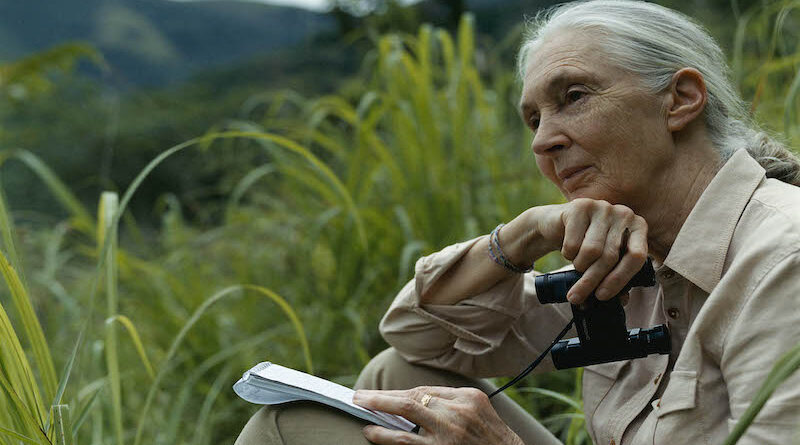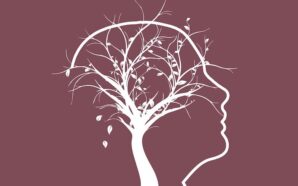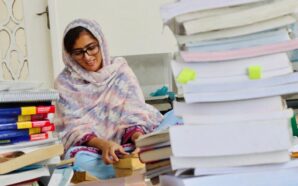The year 2020 has ushered in a time that unreservedly urges humanity to look within itself and seek answers, if not solutions, to the plethora of intersecting crises and burning global questions. Triggered by mankind’s gluttonous greed, the world has come to a screeching halt and is now on the brink of a total meltdown.
Like a domino en-route to total annihilation, man’s guzzling consumerism has played a catalyzing role in accelerating industrialized animal farming. Coupled with this, the encumbering toll on our environment and habitat has been devastating. And as a result our present (and future) is paying a dreadful price.
While those propagating anti-sustainability rhetoric gainfully create a turbulent socio-political environment on state as well as international levels, evidence – nonetheless – is crystal and consequences that we are currently experiencing are proof enough of the great debacle.
Talking about mankind’s disrespect of the environment and lack of compassion for animals, Primatologist, UN Messenger of Peace, Founder Jane Goodall Institute, Dr. Jane Goodall talks with Sabin Muzaffar about the critical need to facilitate nature in protecting planet Earth and all its inhabitants.
The current global situation is such – the COVID19 Pandemic, the heightened case of Australian bushfires, Climate Change etc. – that it is high time to not just understand but work actively towards paving way for environmental reconstruction. As a scientist, what in your opinion, are some of the key elements that can make the earth habitable for life as it actually should be?
There has to be a new mindset. It is absurd to think we can have unlimited economic development around the globe on a planet with finite natural resources. Already in some places these resources are being plundered faster than mother nature can replenish them. As we emerge from this pandemic – which we will – we shall be confronting the much more terrifying threat of climate change. We need a new relationship and understanding of the natural world of which we are a part and on which we rely. We must stop destroying forests and woodlands and wetlands and so on in the name of “progress” and somehow, together, create a new green economy. There are millions of jobs waiting if governments get behind developing renewable energy, regenerative agriculture and small scale family farms and recycling and reusing programmes.
From deforestation, locust infestations, human encroachments on wildlife habitats and bushfires in Australia, one the biggest concerns for scientists and environmentalists is biodiversity? Why is it so critical for life on earth especially human existence? How does it affect every aspect of human health, nutrition and even water and sanitation?
As mentioned, we are part of and rely on the natural world. And this means we need healthy ecosystems. And it is the interrelated web of life, in which every species has a role to play, that creates that healthy ecosystem. We are in the midst of the 6th great extinction, and each time a plant or animal species disappears that web of life is torn. The extinction of even a seemingly insignificant species can lead to the extinction of another, that relied on it – and thus there can be a ripple effect that could – and has – led to ecosystem collapse. Trees in particular play an important part in providing us with clean air and water, and regulate rainfall and climate. And trees, like the oceans, absorb excess CO2 from the atmosphere and give out oxygen. The soil too is important and grasslands can also store cO2.
Zoonotic viruses and infections are transmitted to humans by animals, that is our basic understanding of it and we are actually experiencing this with the emergence of SARS and the COVID19 pandemic. In your opinion, is this an indication that we, humans, have destroyed or are at the brink of destroying biodiversity and the system that supports human existence?
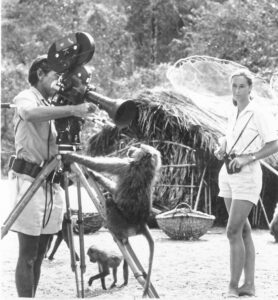
Credit Courtesy of the Jane Goodall Institute.
Scientists studying zoonotic diseases have predicted a pandemic of this sort for a long time. As we destroy ever more of the natural world, animal species, along with the viruses, bacteria and other pathogens they may carry, are forced into closer contact with humans. We steal their habitats, hunt, kill and eat them, traffic them. We create environments that make it easier for a virus like a coronavirus to jump from an animal to a human. Sometimes that virus invades a human cell and may create a new disease. And, as is the case with COVID-19, that disease may infect other humans. HIV-AIDS came from butchering chimpanzees in bushmeat markets in west Africa.
MERS spilled over from a domestic camel to a human in the Middle East. SARS and COVID-19 are both thought to have spilled over from an animal being sold in wildlife markets in China, places were many different species, from around the region and from other countries, are crowded together in unsanitary and very cruel conditions – a perfect environment for the virus to spill over to a human.
In the World Economic Forum COVID Action Platform, you had said that “We need to reshape how we think about food – because our disrespect for farmed animals has created this situation where disease can spill over to infect human beings.” Truly, we are witnessing the repercussions of not just industrialized farming but globalization as well. Would you agree that it is not just our over consumption but lack of compassion (animals living in cramped, disease-ridden conditions in factories etc.) that has created this monoculture of animals who then are very likely to be disease transmitters? What are your thoughts on the notion of empathy?
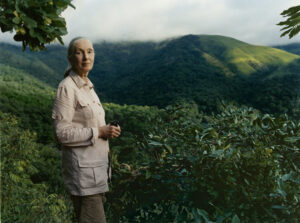
Dr. Jane Goodall on Jane’s Peak in Gombe National Park, Tanzania.
Image Credit: Morten Bjarnhof-GANT
In the early 1960s, when I had been working with the chimpanzees of Gombe for some two years, I went to Cambridge University to do a PhD in ethology (though I had no undergraduate degree). I was told by many of the professors that I had done my study all wrong. I should not have given the chimpanzees names, but numbers. And I could not talk about them having personalities, minds or emotions – for those were unique to humans. I was told there was a difference in kind between us and all other animals. Fortunately I had a wonderful teacher when I was a child who had taught me that in this respect the professors were wrong – and that was my dog, Rusty. You cannot spend time in a meaningful way with dog, cat, horse, camel or any other animal and not know that we are part of and not separated from the rest of the animal kingdom. I was also told that it was wrong to have empathy with the animals you are studying. From the start I knew this was wrong – and has led to a lot of cruelty in the world of science. If you have empathy you are more likely to intuitively understand why an animal is behaving in a certain way. You can then test this with scientific logic. Fortunately I was able to confront the professors not only with detailed descriptions of compassion and altruism (as well as brutality and violence) in the chimpanzees, but illustrate this with film material. And because of this, and the fact that chimpanzees are biologically our closest relatives (we share 98.6% of the composition of DNA with them), science has gradually moved away from that early reductionist way of thinking. This has opened the door to studying personality, mind and emotions in other animals. It is now generally understood that animals are sentient beings, feeling pain and knowing emotions similar to (or the same)as those we call joy, sadness, depression, grief and so on. We need to have empathy with the billions of animals in our “factory farms” where cows, pigs, poultry and other sentient beings are crowded together in horribly cruel and often unsanitary conditions. The same is true for the trafficked animals around the world and the many other cruel ways in which we treat animals. We need to realize that each animal in a factory farm, in a wildlife market, or being transported for long distances, is an individual with its own personality and emotions.
How in your opinion do we need to think about food? Who are the stakeholders who need to think or rather rethink what sustainability is in terms of animal farming (ethical farming if that can be considered a notion) – where these living beings do not have to endure terrible conditions, in turn giving way to viruses to jump species?
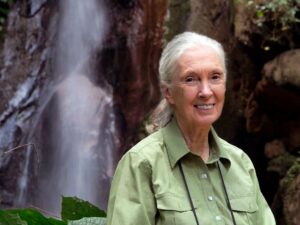
Dr Jane Goodall beside a waterfall in Gombe National Park. Image credit the Jane Goodall Institute – Bill Wallauer
Intensive animal agriculture needs to be phased out. Not only because of the terrible cruelty and the risk to human health, but because of its horrific damage to the natural world. The billions of animals must be fed, habitats are destroyed to grow grain to feed them. Massive amounts of fossil fuel are used to grow the grain – almost all using conventional farming methods required a great deal of chemical pesticides, herbicides, fungicides and fertilizer thus damaging the soil – and to transport it to the animals, the animals to slaughter, meat to the table. Much water is needed to change plant to animal protein, and fresh water is becoming increasingly scarce. And these billions of animals are producing a virulent greenhouse gas, methane, during digestion.
One thing, among the many, that this pandemic has taught us is the dire need to re-examine our consumption patterns – be it food or even our life styles. What kind of changes do we need to make to facilitate nature in protecting us not just from her wrath but from pandemics as well?
We need to move to a plant based diet when possible and we need to understand and respect the natural world and the other animals with whom we share (or should share) the planet. We need to curb the unsustainable life styles of so many of us. Mahatma Gandhi said the planet could support human need but not human greed. We need to alleviate poverty for the very poor will cut down the last tree in a desperate effort to grow more food to feed the family, buy the cheapest junk food because they must. They do not have the luxury of asking how a product was made, did it harm the environment, inflict cruelty to animals Is it cheap because of child slave labour or sweat shops. They cannot afford to think of how their behaviour will affect future generations because of their struggle to live in the present. And we must realize that today the human population is approximately 7.2 billion and already natural resources are being used up in an unsustainable way, and that 9.5 or 9.7 billion of us will inhabit the planet by 2050. Clearly carrying on with business as usual is not an option. Yet many leaders in government and business are just longing to get back to business as usual. Finally, we need a new definition of a successful life, unrelated to the accumulation of vast amounts of wealth and power.
Although the situation is grave, now especially is not the time to lose hope. We would love to finish our interview with words of wisdom from you.
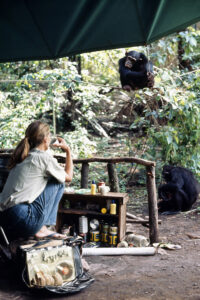
David Greybeard and Jane, Gombe. Image Credit: National Geographic Society – Hugo van Lawick.
In 1991 I started a programme for young people, Roots & Shoots. Today it is growing in 65 countries with thousands of members from kindergarten through to university (with more adults taking part!). It’s main message is that every one of us makes a difference every day and we have a choice as to what sort of difference we make. Each group chooses three projects: to make the world better for people, for animals, for the environment. We bring young people together from different religions, cultures, ethnic groups. Usually virtually. Sharing stories and experiences they learn that more important than colour of skin, language, religion, culture is the fact that we are all part of the human family. And the values of respect – for each other, for animals, for the environment are retained in those who have been member of R&S in school or university. Our “alumni”. They are now taking their place in the adult world in politics, business, law, teaching, gardeners, parents and so on.
Young people are my main reason for hope – they are making a huge difference as they roll up their sleeves and take action – planting trees, cleaning streets and streams, volunteering in animal shelter, raising money for hurricane victims, writing letters to local authorities to protest developments that would harm the environment – the range of activities depends on the age, culture, country, economic status and so on of the groups.
And because they get to choose their projects they are very enthusiastic.
Another reason for hope is the resilience of nature – given time and perhaps some help, places we have destroyed can once again support life. There are examples all around the world – I have seen so many. Animals on the brink of extinction can be given another chance.
And there is our amazing human intellect. So many new innovations that can help us live in better harmony with nature. So many ways we can think of to reduce our own environmental footprint.
Indeed we have greatly harmed the natural world, but we still have a window of time to start healing the wounds we have inflicted and at least slow down climate change.
But the window is closing. We need to get together an take action now.
The interview was originally published in Ananke's special edition on COVID19 and Gender.




